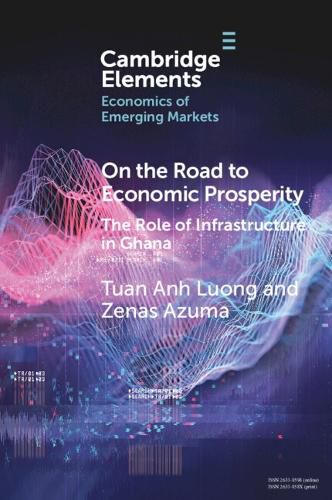Readings Newsletter
Become a Readings Member to make your shopping experience even easier.
Sign in or sign up for free!
You’re not far away from qualifying for FREE standard shipping within Australia
You’ve qualified for FREE standard shipping within Australia
The cart is loading…






This Element investigates how the Ghanaian household wealth index is impacted by travel time reduction, which is a direct effect of infrastructural investments from 2000 to 2016. The wealth index is constructed based on the possession of selected assets and reflects the well-being of residents in Ghana. The Element employs two datasets, the Demographic and Health Survey (DHS) and the DHS Covariates. The two-stage least square estimation is implemented to establish the causal relationship. The Element finds that a ten percent reduction in travel time from 2000 to 2015 would result in a 1.2 percent increase in the wealth index from 2003 to 2016. This finding is robust to various settings, including the addition of more control variables, the use of different instrumental variables, and the study of both short-term and long-term effects. The analysis lends support to the Ghanaian government’s current economic and infrastructure development plans.
$9.00 standard shipping within Australia
FREE standard shipping within Australia for orders over $100.00
Express & International shipping calculated at checkout
This Element investigates how the Ghanaian household wealth index is impacted by travel time reduction, which is a direct effect of infrastructural investments from 2000 to 2016. The wealth index is constructed based on the possession of selected assets and reflects the well-being of residents in Ghana. The Element employs two datasets, the Demographic and Health Survey (DHS) and the DHS Covariates. The two-stage least square estimation is implemented to establish the causal relationship. The Element finds that a ten percent reduction in travel time from 2000 to 2015 would result in a 1.2 percent increase in the wealth index from 2003 to 2016. This finding is robust to various settings, including the addition of more control variables, the use of different instrumental variables, and the study of both short-term and long-term effects. The analysis lends support to the Ghanaian government’s current economic and infrastructure development plans.